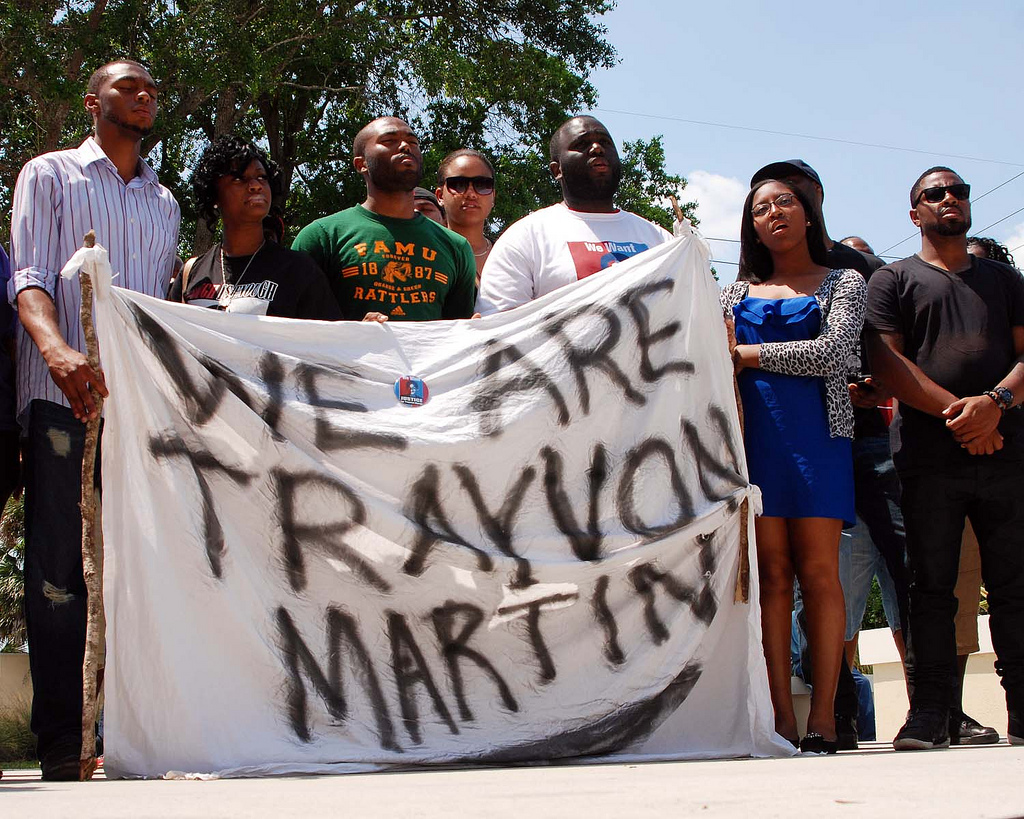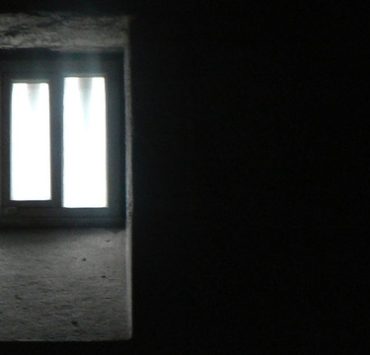
Over a week after the George Zimmerman verdict, tensions continue to mount regarding his acquittal. Clearly the emotional aftermath has created greater divides than it has healed. Media outlets from all factions are using the case to push individual agendas–from pro-gun to pro-choice to anti-violence and anti-war and back again. With all these rhetorical stylings, the real takeaways can be easily missed for talking points. And to quote my friend Colin, “how are we supposed to wade through everyone’s opinion to understand what really matters here?”
Zimmerman was found not guilty of second degree murder. Officially, Zimmerman’s team of lawyers chose not to pursue a defense predicated on Stand Your Ground laws, because Stand Your Ground assumes you have an option to flee but are choosing instead to, ahem, “Stand Your Ground”–Zimmerman asserted he did not have the option to leave (as he was pinned). There were also some shenanigans about strategy and having the case heard before a jury instead of a judge.
Interestingly enough, although the defense specifically chose not to invoke Stand Your Ground, it was included in the jury’s instructions:
If George Zimmerman was not engaged in an unlawful activity and was attacked in anyplace where he had a right to be, he had no duty to retreat and had the right to stand his ground and meet force with force, including deadly force if he reasonably believed that it was necessary to do so to prevent death or great bodily harm to himself or another or to prevent the commission of a forcible felony.
Florida law allows for only six-member juries, and in this case, an all-female non-black jury decided the fate of Zimmerman. So as these women read these instructions, one can imagine the mental checklist. Was Zimmerman engaged in unlawful activity? No, and neither was Trayvon Martin. Did he have a right to be there? Sure, as much as Martin did. According to Florida law, neither man had a duty to retreat, and both had the right to stand their ground and meet force with force, including deadly force if necessary to prevent bodily harm.
Which means that had things gone the other way, and somehow–despite being smaller, unarmed, and without any MMA training–Martin had come up on top, then the law would have worked the same way, right?
Or to put it more eloquently from President Obama:
“For those who resist that idea that we should think about something like these ‘stand your ground’ laws, I just ask people to consider if Trayvon Martin was of age and armed, could he have stood his ground on that sidewalk? And do we actually think that he would have been justified in shooting Mr. Zimmerman, who had followed him in a car, because he felt threatened?” Obama asked. “If the answer to that question is at least ambiguous, it seems to me that we might want to examine those kinds of laws.”
But, Zimmerman wasn’t tried under Stand Your Ground. Those laws work to grant the defendant immunity. Once trial began, Stand Your Ground should not have been a part of the conversation. Zimmerman’s team instead elected a 2nd degree murder charge (an unplanned and non-premeditated homicide) with a strategy built around regular old self-defense. Yet, apparently in Florida there is no longer a difference between the two given these jury instructions.
Could a jury believe that Zimmerman reasonably thought himself in peril? Did the defense raise enough reasonable doubts? The answer is yes. Because it’s not whether the jury, or anyone else for that matter, thought Zimmerman was in peril. The question is whether Zimmerman himself thought he was in sufficient peril. And he asserted through his lawyers and through a videotape of his initial deposition that the answer was “yes.” No need to actually take the stand. Reasonable doubt exists.
The problem, as some Americans see it, is where these doubts come from–and what those doubts mean for our youth.
As Angry Lunatic and Rock Musician Ted Nugent wrote for WND:
Sure, all thinking people are very relieved that George Zimmerman was found not guilty by the intelligent, justice-driven women of the jury, in spite of the façade presented by the prosecution and forced by the threat of racism by everyone from President Obama, to Eric Holder, the New Black Panther gangstas, NAACP, excuse makers of every stripe and even the governor of Florida, but still this innocent man who simply defended his life from a violent, life-threatening, bloodying, head-and-face slamming attack by an enraged black man-child has so wrongly paid an inexplicable price financially and emotionally.
What interests me here is not so much Nugent’s vitriol (he’s always saying something controversial), but the choice of the words “defended his life from a violent, life-threatening, bloodying, head-and-face slamming attack by an enraged black man-child,” which is an interesting way to characterize what happened. This is also a characterization that few are willing to admit they share with Nugent. But one that the defense used to its advantage. Need evidence?
The defense asserted that Trayvon Martin was not unarmed, pointing to his use of the sidewalk’s concrete. That’s right. Trayvon’s weapon? The ground. The defense showed the jury that Trayvon acted like a 17-year old and made boasts, smoked weed, and wore hoodies. Look at the photograph above. Trayvon Martin was just as much on trial as Zimmerman, despite being an A student and not having a vigilante Superman complex. No person, no matter where they come from or what they wear or what they are doing, deserves to be shot for walking the street. But the defense would have you think he was asking for it by “looking suspicious.” As if performing “hood” through dress somehow allows others to suspect you of the worst and use force against you if necessary. Trayvon Martin was portrayed not as a legal minor (an actual by-definition-of-the-law child) who was minding his own business, but instead as an “enraged black man-child.” And we all know what that means in our current racial climate: reasonable fear and doubt.
Zimmerman’s lawyer asserted that race didn’t matter to his client. But when you consider the cultural assumptions our media reinforces about the image above, it’s difficult to imagine race not playing a part.
Eighty-six percent of African-Americans disapproved of the not guilty verdict with just 9 percent approving, according to The Washington Post-ABC News poll on Monday. That’s compared with 51 percent of whites who supported the verdict and 31 percent who disapproved.
I’m not sure how so many outlets can insist that race does not matter. How many people have to disapprove before we can have an honest conversation?
To quote the President again,
“The judge conducted the trial in a professional manner. The prosecution and the defense made their arguments. The juries were properly instructed that in a case such as this, reasonable doubt was relevant, and they rendered a verdict,” Obama said. “And once the jury’s spoken, that’s how our system works.”
What we aren’t talking about is that when it comes to race, “reasonable” gets very subjective.

Ramírez won the inaugural PEN/Fusion Emerging Writers Prize in 2015 for her nonfiction novella, “Dead Boys” (available as a Kindle single from Little A). A nonfiction writer, storyteller, digital maker, critic and performance poet based in Pittsburgh, she is working on her first full-length book, “The Violence” (forthcoming from Scribner).








